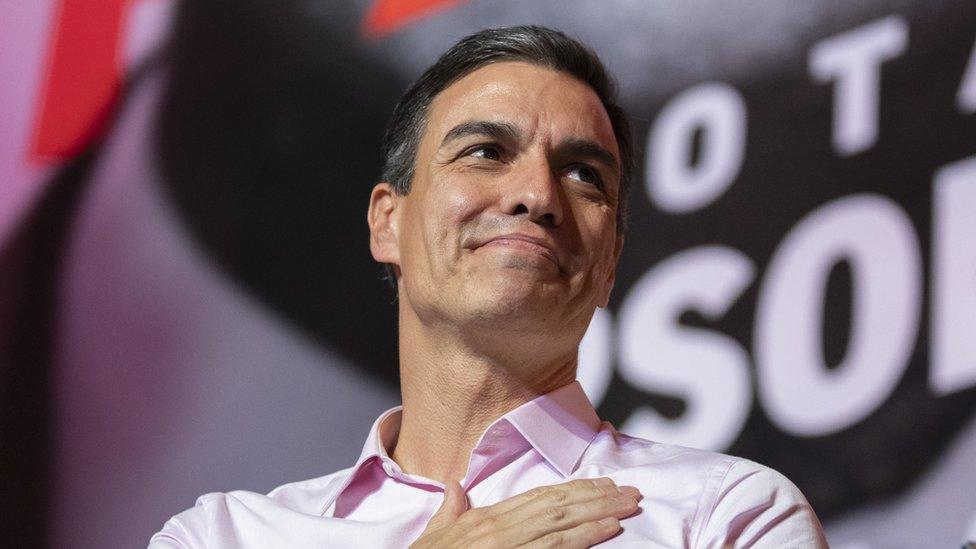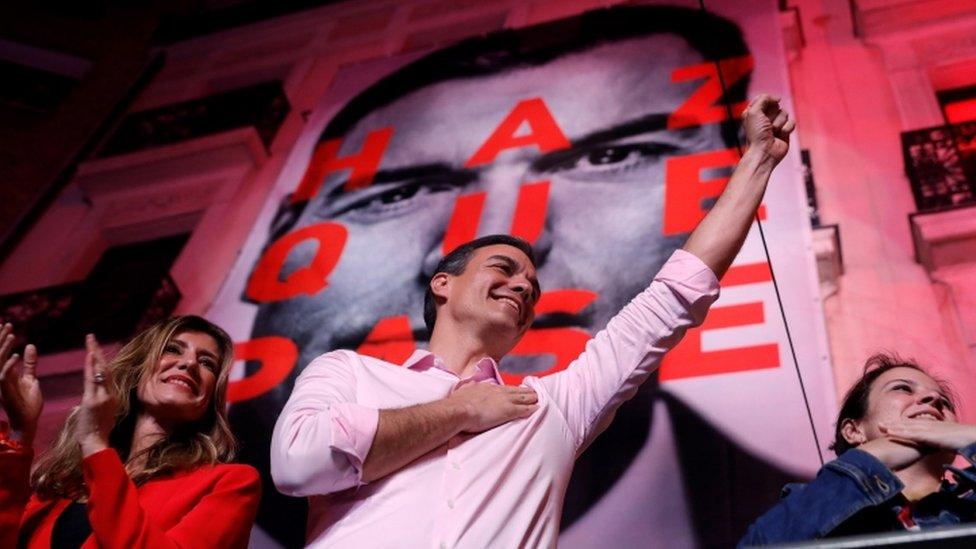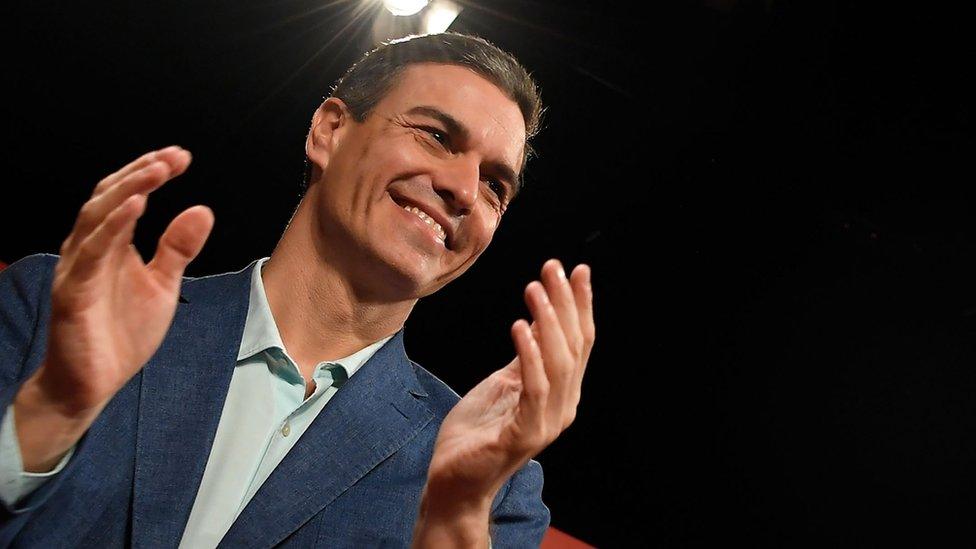Spain election: Socialists consider next move after elections
- Published

Spain's Socialist party won the election with 29% of the vote but failed to secure a majority
Spain's Socialists are considering their next move after failing to gain a majority in Sunday's general election.
Pedro Sanchez's party won the election with 29% of the vote.
But he must join forces with either left-wing Podemos and other regional parties or the centre right if he decides to form a coalition government.
However, fellow Socialist and Deputy Prime Minister Carmen Calvo said in a radio interview that the party would try to govern on its own.
She told Cadena Ser: "We have more than enough to steer this ship along the course it must follow."
And a senior Socialist politician, Miquel Iceta Llorens, told the BBC's Newshour that a minority government could work with case-by-case support from other parties.
"Podemos, the left-wing party is the main one, but also the Basque Nationalist Party, the Canarian Nationalist Party," Mr Iceta Llorens, First Secretary of the Socialist party in the region of Catalonia said.
The Socialists had been governing as a minority since taking office last June. The election was called after Catalan nationalists withdrew support for the government's budget.
For an absolute majority, the Socialist party, which has 123 seats, would need Podemos' 42 seats and 11 more seats from Basque nationalists or Catalan separatists.
Podemos leader Pablo Iglesias said on Sunday evening that he would be willing to "work towards a coalition government."
Alternatively, Mr Sanchez's party could form a government with centre-right Ciudadanos.
However Albert Riviera, head of Ciudadanos, said he would lead the opposition and "keep a close eye on the government."
Talks on any possible coalition could last for some weeks.
With the local and European elections due in May, a government might not be formed until June or July.
Populist party Vox won 24 seats marking the first time a significant far-right force has done so in decades.
- Published29 April 2019

- Published29 April 2019
- Published7 January 2020
